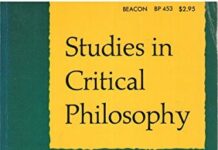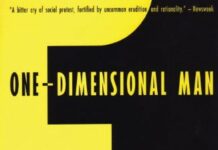
Ebook Info
- Published: 1974
- Number of pages: 304 pages
- Format: PDF
- File Size: 0.60 MB
- Authors: Herbert Marcuse
Description
In this classic work, Herbert Marcuse takes as his starting point Freud’s statement that civilization is based on the permanent subjugation of the human instincts, his reconstruction of the prehistory of mankind – to an interpretation of the basic trends of western civilization, stressing the philosophical and sociological implications.
User’s Reviews
Editorial Reviews: Review A philosophical critique of psychoanalysis that takes psychoanalysis seriously but not as unchallengeable dogma. . . . The most significant general treatment of psychoanalytic theory since Freud himself ceased publication. –Clyde Kluckhohn, The New York Times About the Author Herbert Marcuse (1898-1979) was born in Berlin and educated at the universities of Berlin and Freiburg. He fled Germany in 1933 and arrived in the United States in 1934. Marcuse taught at Columbia, Harvard, Brandeis, and the University of California, San Diego, where he met Andrew Feenberg and William Leiss as graduate students. He is the author of numerous books, including One-Dimensional Man and Eros and Civilization.
Reviews from Amazon users which were colected at the time this book was published on the website:
⭐Happy to have this book’s contents. But I was surprised by the extent of underlining and notes in the margin. Far beyond any expectation for an Amazon Marketplace book.
⭐I enjoyed the ways and forms to surpress your sexual desires by Marcuse. I get his point, we need to work less and bring back our sexual desires back to life.
⭐I read it 40 years ago and it was time to revisit his vision of a psychological future (our today). He’s not far off when he discusses the implications of a decline of privacy and breakdown of family bonds replaced by those of an extended social network.He treats Freud as an author rather than an ideology.Marcuse uses Freud’s terminology, not an explicit model (a point he makes several times) to suggest new ways of looking at society. It’s not an easy read and not all his points are clearly stated (or even intelligible) but worth the effort.
⭐Marcuse’s fusion of Freud’s theory of civilization as a libidinal force held together by the aggressive morality of the super ego with Marxist criticism and theory is remarkably… understandable. A strange thing to say, I know, but I am an English major and most critical books tends to drown under their own abstraction and obfuscation until they become unintelligible.
⭐For me the most important part of the book is in the last section in which Marcuse have many bitter comments against Erich Fromm. It would have been more satisfying if we can also read the rebuttals by Erich Fromm.
⭐One of the greatest books of the 20th Century
⭐Great book. A classic. The packaging and customer service were wonderful.
⭐Marcuse as you expect whether you agree with or not!
⭐For anyone familiar with the final stage of Freud’s metapsychology, Eros & Civilization will be an exciting read. Freud believed that a basic permanent contradiction exists between society and individual happiness, that civilisation only becomes possible through the subjugation of drives and their diversion from fully satisfactory primary aims to far less satisfactory but socially useful activities. The more society expands and consolidates itself, the more the repression of instinctual aims becomes necessary; conversely, the more the primary instinctual aims are satisfied, the more precarious the basis of society becomes. But there is no way out of this conundrum: culture is an exercise in damage control – but damage is inevitable, and to deny this is naïve utopianism.But why must the drives be subjugated if society is to exist? The answer is given in Freud’s postulation of two primary drives which are said to govern the lives of all living organisms, us included. The first of these is named Eros, whose function is to bring together living matter into ever larger unities; the second is called the death drive, whose function is to bring organic matter back to an inorganic state. The problem as Freud sees it is that the death drive consists of primary (and so natural) aggression directed towards the outside world and the organism itself. This primary aggression would make societal living impossible and it must therefore be placated: step in Eros. Eros binds together would-be antagonists by using libidinal energy to create affectionate ties, and in so doing it takes the sharp edge off aggression but at the price of diluting its own resources. In modern culture, which has reached an unprecedented size, Eros has its work cut out; it is in danger of exhausting itself entirely in the myriad relationships it sponsors against aggression, with libidinal energy being sucked away from primary libidinal aims to a potentially catastrophic degree. The danger is that the energy of Eros may become so widespread in meagre dosages that it ultimately becomes ineffectual in binding aggression.In Eros & Civilization Marcuse sets himself the task of resolving this problem. Unlike Freud, he does not believe that there need exist a permanent contradiction between primary instinctual satisfaction (the pleasure principle) and repressed secondary satisfactions (the reality principle). According to Marcuse, Freud failed to see the historical nature of the drives, that their intent is subject to the changing societal frameworks instantiated in the historical series. It just so happens that the reality principle on which all societies yet witnessed in history have been constructed has been one of domination. This has led to the subjugation of primary instinctual aims in the interest of sustaining domination. If we do away with domination, we do away with the necessity of instinctual repression. It is because human societies have always been built upon a repressive reality principle that it is all too easy to assume that such a state of affairs is natural, that a reconciliation between pleasure and reality principle is practically impossible. Marcuse contests this claim. Not only is such a state of affairs realisable, it is also desirable and our only hope of living in a world of free, fulfilled individuals.But what about Freud’s postulation of primary aggressiveness, which after all was the main reason he saw in there being a permanent contradiction between instinctual fulfilment and cultural development? Using Freud as his guide, Marcuse argues that the death drive seeks freedom from want, and that this desire is capable of various forms of expression. In a society built upon renouncing basic desires, want is rife; but there is no need for renunciation of basic drives unless our aim is to sustain domination. If society were built upon gratifying our basic drives, Eros would be strengthened to an as yet unprecedented degree and would be able to absorb the otherwise socially explosive energy emanating from the death drive. Marcuse does not believe in any necessity to primary aggression: he sees it as a reaction to unnecessarily frustrated desires, as a direct consequence of a historical reality principle (the performance principle) injurious to human needs.The book is a fascinating read, but certainly difficult and dense in places. I think there are some inherent problems in Marcuse’s analysis. First of all, just what length of time the so-called performance principle is supposed to span is highly ambiguous: sometimes it appears that he wants to say that the performance principle is characteristic of modern capitalism; yet it also seems to describe any reality principle which involves suppression of instinctual needs for the sake of continued domination, i.e. all of them. So his critique is not necessarily as damaging towards modern capitalist society in particular as he may have intended. Nor does Marcuse decide if domination is a result of Ananke or if domination is separate from Ananke: when he describes the primitive tribes of prehistory, he conjectures that there was a twofold cause of the guilt succeeding the rebellion: on the one hand, it is caused by their killing the lifeblood of the tribe and so endangering their further existence; but it is also caused by the brothers’ own betrayal of their quest for liberation from domination, and freedom. So Marcuse is suggesting that liberation was already possible at the beginning of culture, even though Ananke would certainly have still been a real issue. In other words, Ananke does not seem to be a sufficient cause either for the existence of domination or its continuation. So why does it continue? Freud’s postulation of primary aggressiveness does provide a sufficient cause for explaining the existence and continuance of domination. I am not sure that Marcuse does.His interpretation of some elements of Freud’s theory is selective, at times a veritable pick n’ mix of aspects which suit his ends but do not allow of the painless integration he wants to give them. For instance, Marcuse accepts the idea that global cultural events taking place at a particular point in history become integrated in the human psyche to the extent that they are relived in the life history of all future generations who themselves do not directly experience them. For instance, the Oedipal drama, which was originally a life-and-death struggle among adult males for possession of the female members of the tribe, is re-experienced in miniature by all little boys and girls living today. The Oedipus complex is not seen as a problem for Marcuse’s society: satisfaction of primary instinctual drives will not lead to a regressive clinging on to mother or father because the Oedipus complex has become a natural event which is overcome biologically. And yet the Oedipus complex belongs to an historical event period just as the drives’ composition does, according to Marcuse. Why is it that the Oedipus complex is a natural event and as such unproblematic whereas the composition of the drives as all cultures have experienced them is not? It seems arbitrary to me to say that the Oedipus complex is a natural event but the composition of the drives not so. Marcuse’s theory needs the drives to be pliable, needs them to be capable of a kind of malleability which has never before been their privilege. If we accept Freud’s idea that momentous historical events can become permanent and so unchangeable features of our makeup, the drives may resist any attempt to re-mould them.All of this aside, this book is a stunning work and still goes some way in convincing me of its plausibility.
⭐Thank you 🙂
⭐Libro necesario para mis estudios Buen precio y edición.
⭐
Keywords
Free Download Eros and Civilization : A Philosophical Inquiry into Freud in PDF format
Eros and Civilization : A Philosophical Inquiry into Freud PDF Free Download
Download Eros and Civilization : A Philosophical Inquiry into Freud 1974 PDF Free
Eros and Civilization : A Philosophical Inquiry into Freud 1974 PDF Free Download
Download Eros and Civilization : A Philosophical Inquiry into Freud PDF
Free Download Ebook Eros and Civilization : A Philosophical Inquiry into Freud





